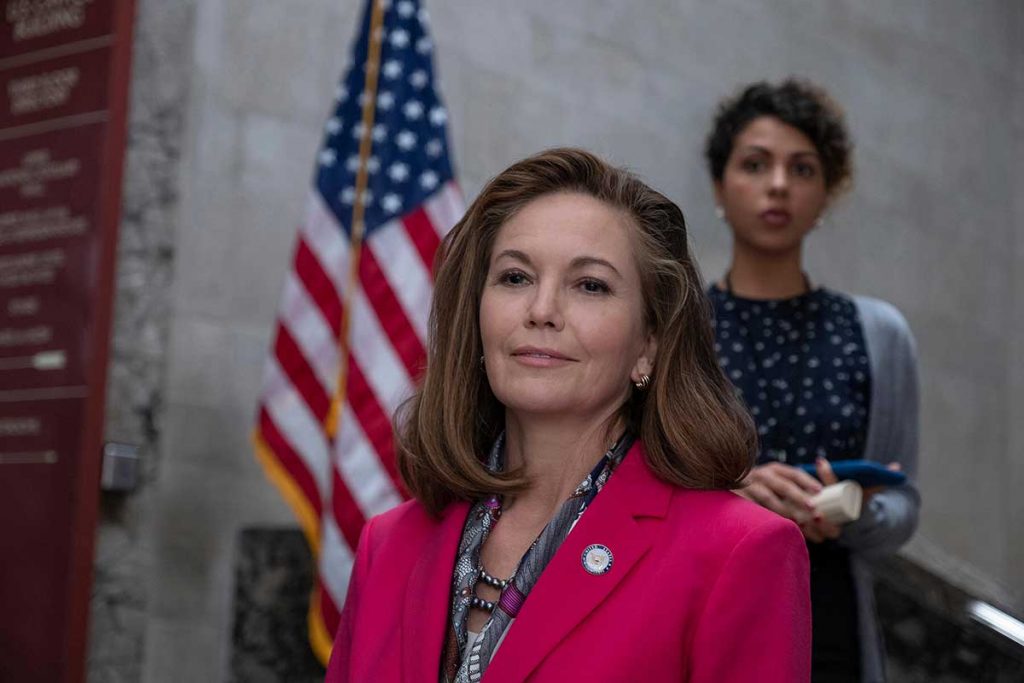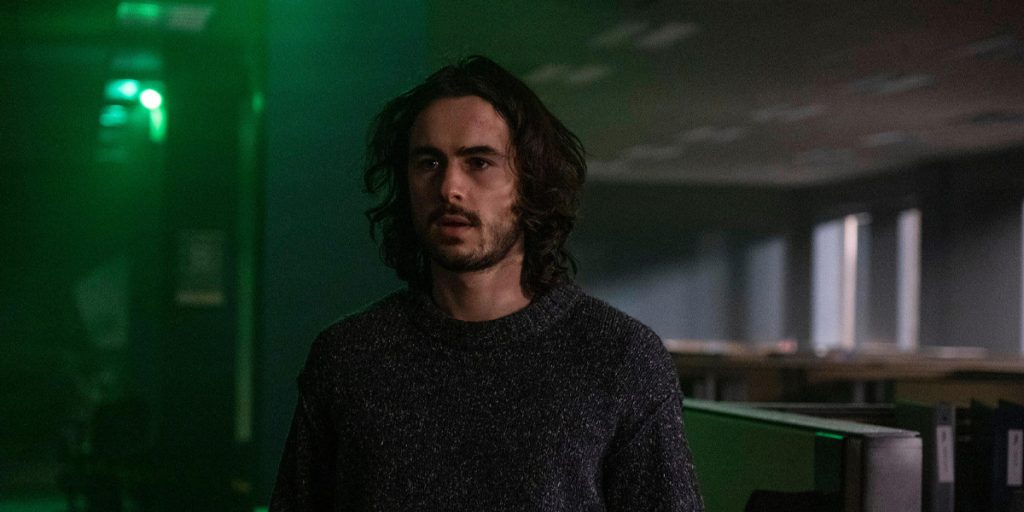Fx on Hulu’s Y: The Last Man ebbs and flows in terms of being compelling, with interesting characters and sparks of narrative promise hindered by frustrating ensemble issues.
When the entire premise of a TV show’s central plot hinges on a mystery, it’s pretty key that that mystery is compelling. Often, as a show progresses, it becomes clear that the hows and the whys haven’t quite been ironed out; but if it does its job correctly, audiences will stick through the meandering to reach the conclusion. (Whether it’s a satisfying one or not is a whole other matter.) Having been adapted from Brian K. Vaughn and Pia Guerra’s successful comic series of the same name, Y: The Last Man at least has an already established end point to get to. It’s just a shame that the meandering is uneven and prematurely cut off just as it narrowed into a more streamlined, interesting point, with the show having been cancelled after just one season.
In a strong opening episode, we first come across an apocalyptic scenario: dead cows are scattered over a snow-covered field, their eyes bloody. Cars are piled up along deserted highways, with a crashed plane spoiling the hillside and plumes of black smoke looming in the distance. Office buildings are full of rotting bodies and scattered papers, and a helicopter hangs perilously over a street memorial, covered in pictures, candles and, oddly, men’s shoes and ties. It’s apparently ‘3 Weeks After’, and we’re introduced to our titular ‘Y’ right off the bat. Along with his capuchin monkey Ampersand, Y – short for Yorick (Ben Schnetzer) – is graffitiing a message to his girlfriend Beth (Juliana Canfield, of Succession) that he’s, miraculously, still alive. Miraculous, because the episode ends with the apocalyptic level ‘event’: every being with a ‘Y’ chromosome on the entire planet drops dead. Except for Yorick and his primate pet.
After a somewhat cliché flashback, the first episode does a really good job of establishing its main female characters as being surrounded by men. But not in a frustrating, this-isn’t-passing-the-Bechdel-test way. Instead, it emphasises the sheer impact this gargantuan loss has on both professional and personal levels by having the audience immediately invest emotionally into the women’s perspectives. Jennifer (Diane Lane, of Let Him Go) is a resolute congresswomen and somewhat estranged mother to Yorick and Hero (Olivia Thrilby). Hero is a paramedic, with a reliance on substances and undertaking an affair with a married co-worker. Agent 355 (Ashley Romans) is an operative with a murky past that works for a shady secret organisation, sent on a mission to infiltrate the Secret Service. Nora (Marin Ireland) is an assistant to the President (Paul Gross), stressed with juggling work and planning the perfect birthday party for her young son. Kimberly (Amber Tamblyn) is the first daughter, a right-wing anti-feminist author, devoted wife and mother to three young sons.
It’s such a shock then, for them to find themselves in a world devoid of the men in their lives, along with the millions of others who simply cease to exist. It’s a really powerful opening that is meticulously crafted by showrunner Eliza Clark and director Louise Friedberg. It’s technically impressive, with really effective special effects – heavy on the gore – and slick direction; well-acted from everyone involved, and the writing is pacy and compelling. Which makes it so frustrating, then, that as the series progresses over its 10 episode arc, it never quite reaches the highs of that first outing.

The first few episodes are heavily reliant on the minutia of the crisis: energy supplies, food shortages, the biological hazard of millions of bodies left to rot in the streets. With the line of succession decimated, Jennifer is now President Brown, and must juggle dealing with these issues alongside trying to keep the fact that her son has somehow survived a secret. It’s refreshing to see such simple issues being explored and explained, emphasising a real commitment to adapting the world-building from Vaughn and Guerra onto the small screen. But as Jennifer and Kimberly’s plot lines devolve into political liberal vs. conservative in-fighting, it starts to get tedious. There’s a myriad of ways the shambolic, slap-dash and make-do government arc could have unfolded – and, indeed, the final two episodes see the introduction of an apparent revolution that sparks with unfulfilled promise – that the squabbling simply induces eye rolls and leaves it feeling tired.
And then there’s the character of Roxanne (Missi Pyle), introduced in episode 4 as the leader of a somewhat cultish group of women sheltering in a heavily stockpiled superstore. Her schtick is really off-putting: a hardened detective with deep rooted patriarchal induced anger that feels out-of-place in a world where the men she rails against have, quite literally, all dropped dead. It makes Hero’s arc of self-discovery and autonomy over her issues really infuriating because the catalyst behind it is such an unpleasant character to be around. It’s almost typical of the entire show in a nutshell, remove certain aspects of each plot, and it’d be a much more enjoyable experience.
Take, for example, Agent 355. Agent 355 is tasked with escorting Yorick to renowned geneticist Dr Allison Mann (Diana Bang), and her character arc sees her develop into the most nuanced and compelling character, with a series standout performance from newcomer Romans, whilst being accompanied by a whiny, soppy, petulant man-child. Yorick, one of last remaining Y-chromosome holders, spends the majority of the series being, frankly, really irritating. His consistent refusal to follow direction, apparent incapability of understanding the seriousness of his situation, and constant woe-is-me attitude starts to really grate. Schnetzer is giving a good performance, the dynamic with Agent 355 has some really affective moments and he has great chemistry with almost every scene partner he shares. It’s just a shame that the character doesn’t really live up to the standard one might expect when placed front-and-centre as the ‘last man alive’.
Y: The Last Man as a show takes great pains to navigate the complicated issue of gender. There are men present, they simply don’t have a Y chromosome. Sam (Elliot Fletcher) is Hero’s best friend, a Trans man whose survival checklist has the added wrinkle of securing a supply of Testosterone, alongside the basics of food and water. He is not always welcomed warmly, and the show hints at the ways in which it could have really delved deeper into the contentious issue, had it been green lit to progress past its turbulent first season. It’s unfortunate that his story won’t be explored, especially in a climate where understanding the fluidity of gender identity is such an important and highly debated topic.
Which, again, is pretty incumbent of the entire show. It’s filled with competent, talented women – both in front of and behind the camera – and by its finale, has managed to condense down its less compelling narrative strands, but hasn’t been given the chance to develop when it could provide a really interesting, topical commentary on society and survival. It appears to have reached the end of its road, having been cancelled by FX at the end of October, before it had even finished premiering the entire season. As with all ensemble pieces, not all components worked as well as others, but the show seemed to have found its footing after a few narrative and character stumbles. It had reached the rung below the pilot episode atop the ladder, with the finale being perhaps the show’s second best episode, and seemed to be shaping up into a compelling mystery.
But alas, poor Yorick, it looks like we won’t get to know you.
All episodes of Y: The Last Man are available to stream exclusively on Fx on Hulu in the US. In the UK and Europe, the series is on Disney+, where the Finale will be released on December 10, 2021.

